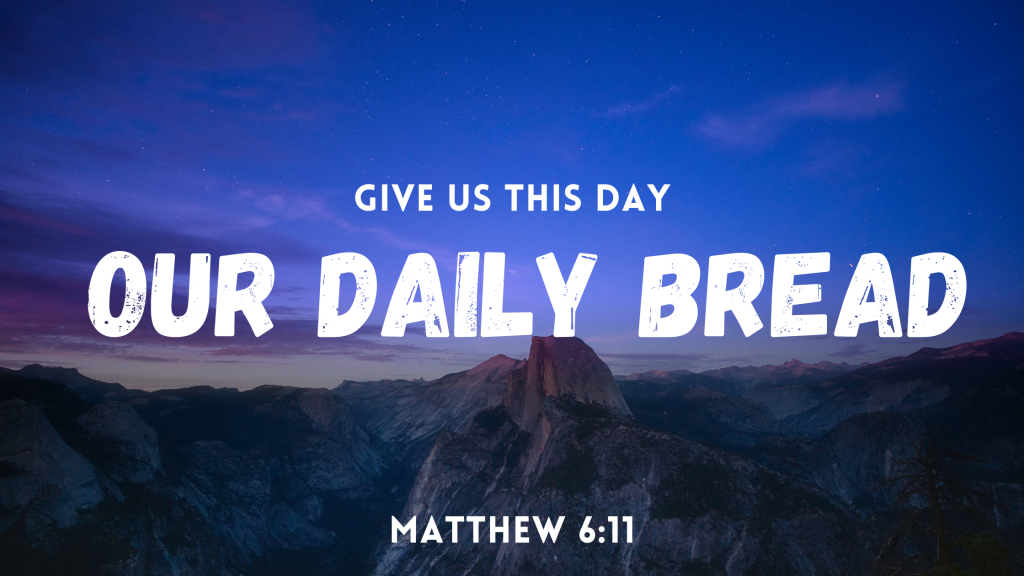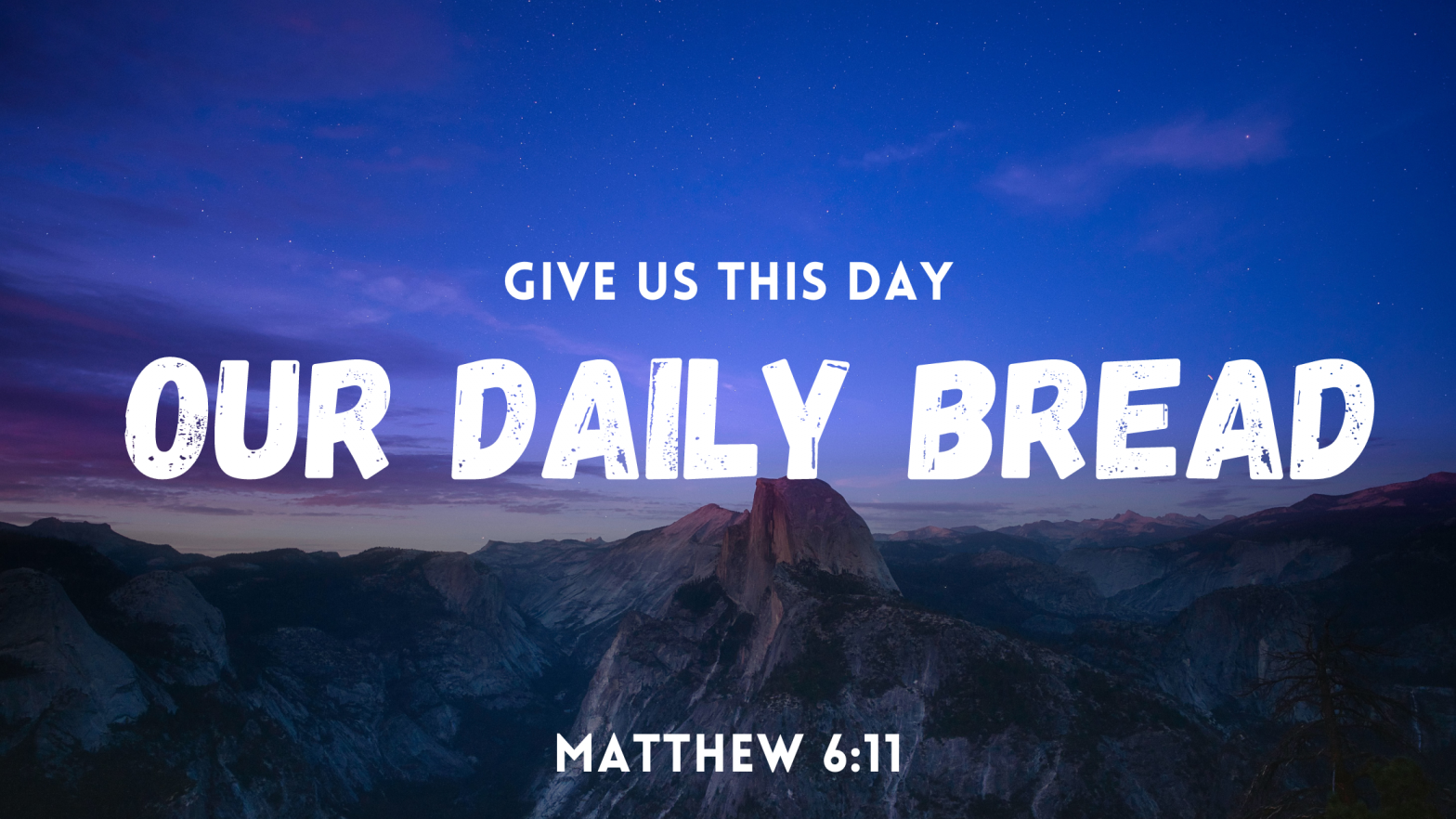
Matthew 6:11 KJV Give us this day our daily bread.
When we see that this is a simple petition for the needs of the everyday, certain tremendous truths emerge from it.
(i) It tells us that God cares for our bodies. Jesus showed us that; he spent so much time healing men’s diseases and satisfying their physical hunger. He was anxious when he thought that the crowd who had followed him out into the lonely places had a long road home, and no food to eat before they set out upon it. We do well to remember that God is interested in our bodies. Any teaching which belittles, and despises, and slanders the body is wrong. We can see what God thinks of our human bodies, when we remember that he himself in Jesus Christ took a human body upon him. It is not simply soul salvation, it is whole salvation, the salvation of body, mind and spirit, at which Christianity aims.
(ii) This petition teaches us to pray for our daily bread, for bread for the coming day. It teaches us to live one day at a time, and not to worry and be anxious about the distant and the unknown future. When Jesus taught his disciples to pray this petition, there is little doubt that his mind was going back to the story of the manna in the wilderness ( Exodus 16:1-21) . The children of Israel were starving in the wilderness. and God sent them the manna. the food from heaven; but there was one condition–they must gather only enough for their immediate needs. If they tried to gather too much, and to store it up, it went bad. They had to be satisfied with enough for the day. As one Rabbi put it: “The portion of a day in its day, because he who created the day created sustenance for the day.” And as another Rabbi had it: “He who possesses what he can eat to-day, and says, ‘What shall I eat to-morrow?’ is a man of little faith.” This petition tells us to live one day at a time. It forbids the anxious worry which is so characteristic of the life which has not learned to trust God.
(iii) By implication this petition gives God his proper place. It admits that it is from God we receive the food which is necessary to support life. No man has ever created a seed which will grow. The scientist can analyse a seed into its constituent elements, but no synthetic seed would ever grow. All living things come from God. Our food, therefore, is the direct gift of God.
(iv) This petition very wisely reminds us of how prayer works. If a man prayed this prayer, and then sat back and waited for bread to fall into his hands, he would certainly starve. It reminds us that prayer and work go hand in hand and that when we pray we must go on to work to make our prayers come true. It is true that the living seed comes from God, but it is equally true that it is man’s task to grow and to cultivate that seed. Dick Sheppard used to love a certain story. There was a man who had an allotment; he had with great toil reclaimed a piece of ground, clearing away the stones, eradicating the rank growth of weeds, enriching and feeding the ground, until it produced the loveliest flowers and vegetables. One evening he was showing a pious friend around his allotment. The pious friend said, “It’s wonderful what God can do with a bit of ground like this, isn’t it?” “Yes.” said the man who had put in such toil, “but you should have seen this bit of ground when God had it to himself!” God’s bounty and man’s toil must combine. Prayer, like faith, without works is dead. When we pray this petition we are recognizing two basic truths–that without God we can do nothing, and that without our effort and co-operation God can do nothing for us.
(v) We must note that Jesus did not teach us to pray: “Give me my daily bread.” He taught us to pray: “Give us our daily bread.” The problem of the world is not that there is not enough to go round; there is enough and to spare. The problem is not the supply of life’s essentials; it is the distribution of them. This prayer teaches us never to be selfish in our prayers. It is a prayer which we can help God to answer by giving to others who are less fortunate than we are. This prayer is not only a prayer that we may receive our daily bread; it is also a prayer that we may share our daily bread with others.
